Profile of Filipino Women in Maritime
Seafaring as an occupation, and the
maritime community as a whole, has been recognized as traditionally a
male-dominated industry. To encourage more women to engage in a career at sea
and in the maritime sector, several campaigns have been launched by the
International Maritime Organization (IMO) and other various stakeholders. In 2020 the IMO issued a Resolution strongly
encouraging Member States and Administrations to collect, consolidate, and
analyze data on female participation to track and quantify progress in
achieving a barrier-free environment, increasing participation, and empowering
women who would like to join and succeed in the male-dominated maritime
industry.
In general, the study aimed to get a
first snapshot of the profile of Filipino women working in the maritime
industry. Specifically, it sought to
determine the distribution of those working in shore-based and seafaring
fields; from support to management/executive level positions they occupy; and,
identify gender-related employment challenges encountered by women seafarers
and the policies and practices to promote gender equality adopted by the
maritime industry.
The research is descriptive. Convenience sampling was adopted. Data collection
was through the conduct of a survey to gather individual women seafarers' data
and industry data. The survey was administered both online and by physically
administering the questionnaire. All data were anonymized and aggregated to
produce the report in line with the objectives of the study.
Results of the study affirm the
participation of Filipino women in shipboard positions or capacities is still a
minority, consistent with global figures. Filipino women’s seafaring jobs are
mostly in Steward/Catering Department. Respondents expressed gender
discrimination at work, in promotion, during cadetship, and in training. In the
industry survey, results reveal that less than half of shipping
companies/crewing agencies adopt a formal policy on gender equality. The
participation of women in shipping and crewing management is also of a minority
number in general, as well as in the board, middle management, and support
levels; although women’s participation is in the majority for core roles. The
women in C-suite or senior management level positions share around 11% of the
total employees in crewing and shipping.
Recommendations of the study cover areas for action by all industry
stakeholders such as crewing/shipping, government, maritime education &
training institutions, and maritime organizations/associations.
8 Comment(s)
Upcoming Event
Research Archives
- MANAGING THE THREATS OF COVID-19 TO SEAFARERS' HEALTH AND WELL-BEING: RESPONSE OF THE PHILIPPINE MARITIME INDUSTRY (PHASE 2)
- PHILIPPINE DOMESTIC MARITIME INDUSTRY'S COMPLIANCE WITH MLC, 2006: CHALLENGES OF IMPLEMENTATION
- ISSUES AND CONCERNS ON THE NON-RATIFICATION OF THE PHILIPPINES OF THE INTERNATIONAL CONVENTION ON STANDARDS OF TRAINING, CERTIFICATION AND WATCHKEEPING FOR FISHING VESSEL PERSONNEL (STCW-F)
- PHILIPPINE MARITIME MANPOWER FACTBOOK 2020 & 2021
- THE CAPACITY OF THE PHILIPPINE MARITIME INDUSTRY TO PRODUCE OFFICERS-IN-CHARGE (OIC) PER STCW REQUIREMENTS: FOCUS ON THE ONBOARD TRAINING (OBT) OF CADETS
- PHILIPPINE EMPLOYMENT LAWS RELATIVE TO SEAFARERS: FOCUS ON THE PHILIPPINE ARBITRATION SYSTEM AND AMBULANCE CHASING
- EMPLOYMENT ACCEPTABILITY OF WOMEN IN PHILIPPINE DOMESTIC SHIPS
- AUTONOMOUS SHIP TECHNOLOGY: ITS IMPLICATIONS TO PHILIPPINE MARITIME INDUSTRY
- REQUIRED NON-TECHNICAL (ESSENTIAL) SKILLS BY EMPLOYERS FOR SHIPBOARD EMPLOYMENT OF MANAGEMENT LEVEL OFFICERS
- PERCEPTION OF NMP FEMALE TRAINEES TOWARDS THE SEAFARING PROFESSION
- HARBOR PILOTAGE IN THE PHILIPPINES A REVIEW OF INTERVENTIONS IN LICENSING, APPOINTMENT AND CAPABILITY BUILDING OF HARBOR PILOTS
- NMP GENDER SENSITIVITY TRAINING FOR SEAFARERS (GSTS) COURSE: A PROGRAM EVALUATION
- SKILLS GAP ANALYSIS OF MARITIME FACULTY IN PHILIPPINE MARITIME HIGHER EDUCATION INSTITUTIONS
- RESPONDING TO THE FILIPINO SEAFARERS’ TRAINING REQUIREMENTS IN THE STCW 2010 MANILA AMENDMENTS: CHALLENGES AND OPPORTUNITIES
Subscribe to our Newsletter
Discover the latest upcoming and ongoing research. Don't forget to pre-register for the upcoming events.
Updates will be notified through your registered email to this portal.


lxbfYeaa lxbfYeaa Tuesday Apr 29, 2025 03:32 am
1
lxbfYeaa lxbfYeaa Tuesday Apr 29, 2025 03:32 am
1
lxbfYeaa lxbfYeaa Tuesday Apr 29, 2025 03:31 am
1
lxbfYeaa lxbfYeaa Tuesday Apr 29, 2025 03:31 am
1
lxbfYeaa lxbfYeaa Monday Apr 28, 2025 06:16 am
1
lxbfYeaa lxbfYeaa Monday Apr 28, 2025 06:16 am
1
Monday Apr 28, 2025 06:15 am
1
lxbfYeaa lxbfYeaa Monday Apr 28, 2025 06:15 am
1